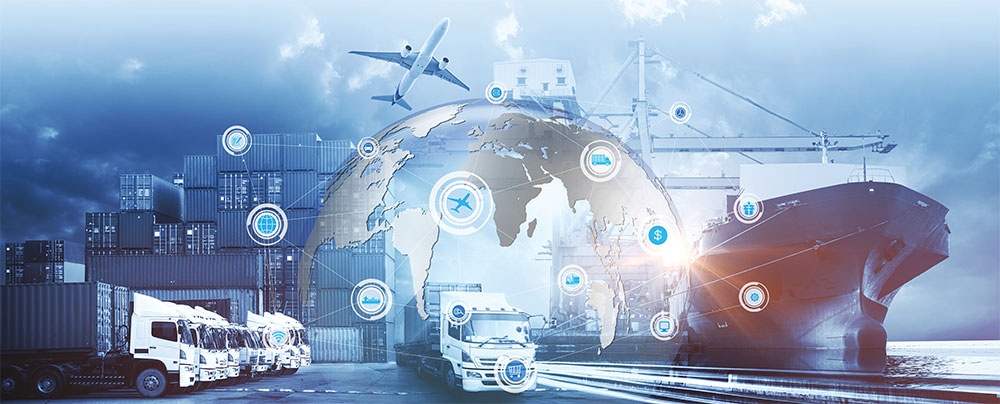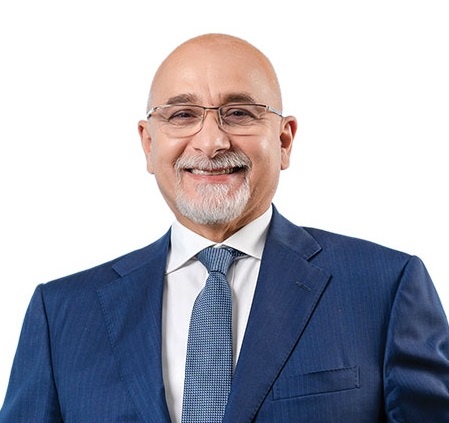The keys to economic momentum
 |
| The keys to economic momentum. Photo: Shutterstock |
| Michele Wee, CEO of Standard Chartered Vietnam | |
“Maintaining macroeconomic stability” We expect the global economy to slow in 2023 as central banks around the world maintain restrictive monetary policies. We forecast modest global GDP growth of 2.5 per cent in 2023, slowing from an expected 3.4 per cent in 2022. The headwinds that have faced most economies in 2022 are likely to persist in the months ahead, however, we anticipate a recovery to take hold in the second half. Our recent global research report on Vietnam indicates that GDP growth is likely to remain strong in 2023. We still have a conviction about Vietnam’s high-growth potential over the medium term, expecting the growth rate to be 7.2 per cent in 2023 and 6.7 per cent in 2024. While macro indicators moderated somewhat in Q4/2022, they remain largely robust. Retail sales posted solid growth in the second half of 2022, implying improved domestic activity. The trade balance has improved somewhat but exports may still struggle and imports are at risk of reversal. Foreign investment disbursement has continued to increase but the outlook hinges on the global economy. Inflation may still pose a threat to Vietnam’s continued recovery. It is anticipated to rise throughout 2023, potentially reaching 6 per cent in the final months of the year and averaging 5.5 per cent in both 2023 and 2024 (from 3.2 per cent in 2022). Vietnam’s fiscal deficit may persist and become a source of inflation. We expect the State Bank of Vietnam to stay vigilant against inflation, a weakening VND, and financial instability arising from risky loans in the real estate sector. They have done a good job of maintaining the stability of macroeconomic conditions. Good news came in December when leaders from Vietnam and the International Partners Group agreed on a bold just energy transition partnership (JETP). The partnership will support Vietnam to deliver on its ambitious net-zero 2050 goal, accelerate the peaking of its greenhouse gas emissions, and transition away from fossil fuels to clean energy. We were honoured to sit alongside the Vietnamese government, business leaders, and civil society in this process to deliver climate action and create new jobs. Standard Chartered Bank Vietnam will continue to support and build on the Vietnamese government’s ambition and the success of COP27. It will be a very exciting journey for all of us in Vietnam as we work together to execute the different verticals of work under the JETP to deliver our collective ambitions to become net-zero by 2050. | |
| Guido van Rooy, executive director of the Dutch Business Association Vietnam | |
“Building a bridge” We are starting 2023 on the right foot by moving into our brand-new office in the heart of Ho Chi Minh City’s District 1. This new facility reflects our commitment to growth and progress but is also a symbol of our dedication to serving our community in the most efficient and effective way possible. The celebration of 50 years of diplomatic relations between the Netherlands and Vietnam will be an important milestone that reflects the strong and enduring partnership between the two countries. There is much interest from the Netherlands in Vietnam’s sustainability and high-tech manufacturing industries as these sectors offer significant growth potential and are key areas of focus for both countries. The Netherlands is home to many leading companies in these sectors and Vietnam is an attractive destination for Dutch businesses looking to expand their operations. Our Ready to Export programme is an important initiative that enables talented Vietnamese enterprises to open new relations and forge new business connections with Dutch enterprises. This year marks the second year of the programme and we can expect to see many exciting opportunities for Vietnamese companies to grow and expand their businesses. In addition to the high-level visit from the Netherlands to Vietnam this year, it is expected that there will be multiple visits from both the public sector and Dutch enterprises. These visits provide an opportunity for both countries to further strengthen their relationships and explore new areas of cooperation. We stand ready to play a connecting role through community initiatives, business events, and dialogue with the government, and we look forward to working with the Dutch Embassy, the Consulate General, and other partners to maintain the bridge between Vietnam and the Netherlands. It is also expected that there will be more interest from Vietnamese enterprises to enter the Dutch and European markets. The Netherlands is home to many leading companies and is an attractive destination for businesses looking to expand. We look forward to working with the Vietnamese Chamber of Commerce and Industry, Vietrade, the Vietnam Young Entrepreneurs Association, and other partners to facilitate the entry of Vietnamese businesses into the Dutch and European markets. | |
| Sami Kteily, executive chairman of PEB Steel | |
“Budgeting to expand our operations” Business was challenging in the second half of 2022 due to high inflation, energy costs, and interest rates, along with depreciation of the VND, volatile steel prices, slow-moving projects, and the slow collection of debts, which all came together to create a very negative atmosphere. Faced with all these obstacles, we intensified our efforts to become more energetic, efficient, and economical and managed to close the year exceeding our annual budget. I believe we are among the lucky ones in the steel industry, as our industry suffered a lot in 2022, especially at a downstream level. For 2023, instead of cutting costs and closing offices, we have budgeted to expand our operations to three new markets and to intensify our marketing and sales activities in our seven existing markets. We believe this will gain us better results, if not in 2023, then definitely by 2024 and beyond. We start the year full of energy and determination to continue our successful 28-year journey in Vietnam. | |
| Federico Vasoli, managing partner of dMTV Global | |
“Reassuring both local and foreign players” Last year was a particularly bright one for the economy of Vietnam. Foreign investments – especially from the region – are pouring in, in part due to geopolitical issues surrounding China, the GDP growth rate reaching record levels, and trade increasing thanks to free trade agreements. Vietnam is indeed the place to do business in and with, and as a European, I can only say it is a pity that so few companies from my part of the world are taking advantage of this growth. I come from a country (Italy) whose complex legal and judicial system is the number one reason for foreigners not to come and invest. At the same time, I directly witness large numbers of businesses still investing in expensive jurisdictions like Singapore, Switzerland, the United States, and others. This is thanks to their very streamlined legal and regulatory systems, which make up for higher costs and even higher tax and wage levels. On top of this, they are top-notch innovation centres and homes to wealthy consumers. However, if we look at the rankings from the World Bank and the Heritage Foundation, Vietnam is still performing badly. We note that some indicators – such as business freedom – are strong but others – like property rights, monetary freedom, judicial effectiveness, and others – are quite poor. For example, opening a limited liability company in Italy is straightforward. The figures involved are set forth by the law and are the same whatever the nationality of the shareholders. When foreign clients ask me the same question about setting up in Vietnam, my answer needs to be more elaborate as it depends on a number of factors. There are also contradictions in Vietnamese laws (as in many other jurisdictions), such as those on interest rates for late payments or on the termination of agreements as simultaneously defined by the civil code and by commercial law. In addition, there are difficulties in enforcing rights from abroad, such as extending intellectual property rights, due to the language barrier and other issues. This has affected investors’ performance, especially when compared to countries like Singapore, where a private limited liability company can be incorporated with just one Singapore dollar, a copy of the relevant passport, and proof of address for the individual shareholders without ever seeing a translator or a notary. Whilst the initial rationale for those procedures may be noble, a young and dynamic country like Vietnam cannot possibly rely on cheap labour forever if it aims to become a mid-high income country and home to sustainable manufacturing and clean energy. The country should show tangible signs of modernisation and simplification coupled with adequate training of its judiciary to reassure both local and foreign players that their rights will be upheld. | |
| Fred Burke, vice chairman of the Hong Kong Business Association in Vietnam | |
“Rapid adaptation the key to survival” After a slowdown in trade and investment relations between Hong Kong and Vietnam, ties are on the mend and showing signs of promise. From the Hong Kong perspective, Vietnam has been one of its 10 largest trading partners for many years, ranking eighth in 2021 and for the first nine months of 2022. Moreover, trade has been on the rise again, with a 19.3 per cent increase in two-way trade in 2021 and a 24.2 per cent rise in the first nine months of 2022 – amounting to $25.2 billion. We are aware that both economies are facing a challenging period ahead, with weakening export markets, rising interest rates, and inflation. However, there are also many reasons for optimism looking forward. Among other things, transportation costs for Vietnam’s exports look set to drop in the coming year, making exports to Hong Kong and its markets more competitive. Vietnam has shown how nimble it can be in terms of policymaking, energy price regulation, and credit growth during periods when rapid adaptation has been the key to survival. Some difficulties do remain. While Hong Kong managed to lift its strict pandemic restrictions for visitors, it is still difficult for Vietnamese to get business and work visas to come to Hong Kong. On the Vietnam side, the government’s continued efforts to implement administrative reform have been encouraging, but licensing and permits for project implementation are still an uphill struggle. Given the two sides’ keen interest in the expansion of trade and investment, it is easy to be confident that the barriers will be overcome and the bilateral trade and investment relationship will thrive. | |
| Nicolas Michaux, managing director of Alpha Prime | |
“Dedicated to development and expansion” When energy and essential commodities tend to lack, tensions grow. In this environment, Vietnam has a good option to play since it now benefits from the free trade agreements with the United States and also with Europe and can promote its country as a complement or a solid alternative to the traditional Chinese manufacturing hub. With an average population age that is seven years younger than China, it can also bet on a dynamic and qualified workforce, which tends to extend its expertise into service industries, including the digital services that are booming in the country. Efforts from the Vietnamese government have been dedicated to strengthening this development and expansion. However, the country still needs to compete with many others in Southeast Asia that also have many attractive points. To continue to attract more foreign investors, I would say that Vietnam needs to improve certain systems, especially lightening its capital control policy for foreign investors and simplifying its accounting, tax, and legal regulations to align it more with the benchmarks in the region – such as Singapore or Hong Kong – which offer an easy and straightforward environment for entrepreneurs willing to set up and develop their business. A certain degree of protection is required for local markets – especially in the real estate sector – to keep speculation under control and prices affordable for Vietnamese people. Vietnam should dedicate efforts to strengthening its domestic consumption and avoid being too dependent on exports. Improving mobility within the country will also attract more foreign investors and tourists and facilitate internal economic growth. | |
| Bui Vinh Thang, Vietnam country manager for GWEC | |
“Setting out to deliver ambitious targets” In 2021, the Vietnamese government made a very impressive commitment to achieve net-zero by 2050. The Just Energy Transition Partnership (JETP) signed a couple of months ago, and other programmes like it, will be instrumental in helping countries like Vietnam achieve their net-zero commitments. The wind industry is confident it can deliver substantial amounts of power for Vietnam. The JETP targets are very aggressive with a commitment to move from the current target of 36 per cent of renewables by the end of this decade to 47 per cent – enabled by international support. However, the lack of policy clarity since the end of 2021 leaves limited paths forward to ensure the delivery of large amounts of renewables by 2030. Vietnam’s vast potential for both onshore and offshore wind makes it uniquely suited to scaling up quickly. The removal of key bottlenecks will take a concerted effort on the part of both industry and government. The commitment to $15.5 billion in appropriate financial instruments over the next 3-5 years is very significant. However, the Global Wind Energy Council (GWEC) notes that due to policy uncertainty, it is unlikely that significant funds can be deployed in the next year. That leaves years 2-5 for the deployment of $15.5 billion. This is an ambitious target, but also a great opportunity. Specific recommendations from GWEC include establishing an inter-ministerial committee to solve the cross-ministry policy bottlenecks. The grid is a key enabler of renewable energy and should be a priority. Current wind and solar projects face significant amounts of curtailment. Matched with storage, investment in grid upgrades is critical to achieving the target of 47 per cent of renewable capacity by 2030. Vietnamese law currently allows private investment in the transmission system. In many other countries, this has resulted in substantial improvements to the grid (control can still remain with Electricity of Vietnam). The JETP could be the perfect catalyst for initiating private investment in Vietnam’s grid. Offshore wind demonstration projects are critical to helping develop the offshore wind supply chain and building the capabilities within the country that will allow for low-cost offshore wind. Concessional finance could help to significantly reduce the initial costs of these projects. It should be a priority to ensure that onshore wind and solar auctions are held as soon as the auction design process can be completed. The electrification of the economy, through electric vehicles, the electrification of industry, and other options, remains one of the few pathways to fully decarbonise the Vietnamese economy. The JETP can help to facilitate this. In addition to contributing to Vietnam’s net-zero target, if implemented, all of the above recommendations will significantly increase Vietnam’s energy security and create new industries and substantial numbers of jobs. | |
| Ian Nguyen, co-founder and managing director of Delta Offshore Energy | |
“A desire to lift Bac Lieu out of poverty” The story of Delta Offshore Energy’s (DOE) 3,200MW Bac Lieu liquefied natural gas (LNG) power project started back in 2018 when Vietnam embarked on the transition to green energy. We saw a fantastic opportunity. Not only had Bac Lieu established itself to become a renewable energy centre for Vietnam, but the addition of LNG-to-power in the province would also contribute to energy security and improve socioeconomic development. At the time, Bac Lieu was one of the three provinces facing the most difficult socioeconomic situations in the Mekong Delta, relying on a rather basic economic model that was mostly focused on agriculture and aquaculture with rice and shrimp being the two main products. Half of the provincial expenditure was supported by the central government budget. According to calculations, the income from various applicable taxes during construction and the full capacity of the 3,200MW LNG-to-power project would enable Bac Lieu to maintain a self-sustainable budget and become a financially independent province that no longer required budget assistance from the central government. DOE appreciates the coal-to-gas transition policy and believes that our investment was timely for the province, the region, and Vietnam in general. Since 2018, with unwavering support from governmental authorities at all levels, we are thrilled to share that the Bac Lieu project has completed all the investor's obligations in the development phase according to the law. We have maintained robust discussions with Electricity of Vietnam and we are at the final stage of negotiation on the power purchase agreement (PPA). This will be finalised as soon as possible in accordance with Vietnamese policies. Simultaneously, DOE has aligned all the foreign components of the project, subject to the execution of the PPA. We also obtained a grant of more than $1 million from the US Trade and Development Agency to fund an international feasibility study for the transmission line's connection to the project, which is currently being conducted by Black & Veatch with the support of local consultants. To achieve this outstanding progress, DOE has received tremendous support from relevant authorities in Bac Lieu and the central government to resolve procedural and policy bottlenecks. In particular, a special task force led by the Ministry of Planning and Investment has been established to tackle outstanding issues. This excellent solution, rarely seen in many countries and ordered by Prime Minister Pham Minh Chinh, is highly appreciated by the investor community in Vietnam. It reaffirms the PM’s message of “harmonised benefits and shared risks” for investors. |
What the stars mean:
★ Poor ★ ★ Promising ★★★ Good ★★★★ Very good ★★★★★ Exceptional
Related Contents
Latest News
More News
- Masan Consumer names new deputy CEO to drive foods and beverages growth (February 23, 2026 | 20:52)
- Myriad risks ahead, but ones Vietnam can confront (February 20, 2026 | 15:02)
- Vietnam making the leap into AI and semiconductors (February 20, 2026 | 09:37)
- Funding must be activated for semiconductor success (February 20, 2026 | 09:20)
- Resilience as new benchmark for smarter infrastructure (February 19, 2026 | 20:35)
- A golden time to shine within ASEAN (February 19, 2026 | 20:22)
- Vietnam’s pivotal year for advancing sustainability (February 19, 2026 | 08:44)
- Strengthening the core role of industry and trade (February 19, 2026 | 08:35)
- Future orientations for healthcare improvements (February 19, 2026 | 08:29)
- Infrastructure orientations suitable for a new chapter (February 19, 2026 | 08:15)









 Tag:
Tag:



















 Mobile Version
Mobile Version